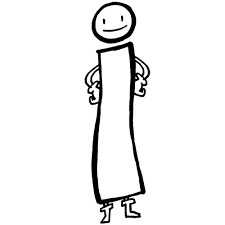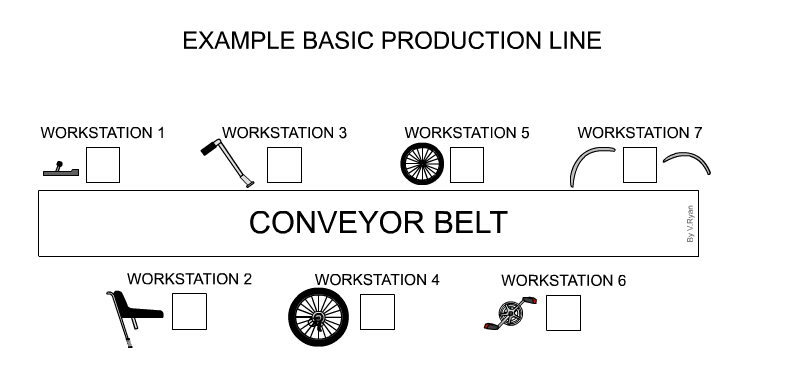Welcome home! Please contact lincoln@icrontic.com if you have any difficulty logging in or using the site. New registrations must be manually approved which may take several days. Can't log in? Try clearing your browser's cookies.
On immortality
 Jeroen
Not all those who wander are lostNetherlands Veteran
Jeroen
Not all those who wander are lostNetherlands Veteran
If we are immortal, will be reborn, are not lost in death
Then so much of the struggle to survive becomes pointless
And can be allowed to drop away.
So much suffering, desire, avoidance
Are left behind in the belief in an eternal life
It seems a basic foundation of happiness.
Westerners often come from a presumption of one lifetime
A span between birth and perhaps death or afterlife
It takes time to sink in, that this may not be so.
But perhaps acceptance of immortality
May be necessary and useful to one’s certainty
Before treading on the path to cessation.

1


Comments
Did you write this...?
Yes I did... I thought why not try something a little different.
It's nice, but fanciful. There is no 'immortality' in Buddhism, you're aware of this, right...?
Nothing wrong with being fanciful.
If we observe that reality is both relative and absolute, we can say there is immortality in the absolute sense. Given our habitual way of seeing the world, people seem to die. Given a wider perspective, nothing dies, nothing is born.
Right?
According to Soto Zen (I think...) we need a balance of relative and absolute in our practice.
Well actually, there's quite a lot wrong with being fanciful, if you're inaccurate and don't realise it.
There is Deathlessness in the Ultimate sense, but not in the physical sense...
I think it would be helpful for @Kerome to elaborate on his intention...?
I'm not trying to be difficult.
I'm just not sure what he means...
It has reincarnation and karma, which is a kind of eternal life, wouldn’t you agree? Not quite everything comes along, there is an element of transformation, but it wouldn’t be a “reincarnation” if part of the ‘old you’ didn’t transfer across. It’s debated, but it seems likely even with the various arguments of “not self”.
I did come across a list of elements in the sutra’s that do come along from one rebirth to the next not long ago, perhaps someone else will know the exact sutra. Also, the Buddha and others were supposedly able to recall their past lives, which would imply some kind of cross-rebirth store for memories.
I was merely trying to point to the way a belief in rebirth and a kind of immortality supports happiness, even before you embark on the journey to nirvana. Among westerners there is I think a temptation to tend towards more secular views, but you might be losing a certain effect of the teaching by doing so.
No. Reincarnation is a Tibetan Buddhist premise and it's confined to Lamas and Specific Gurus. Everyone else is subject to re-birth. That is not a continuation of anything recognisable as ourselves in this life, at all.
Theravada does not subscribe to reincarnation at all, as far as I am aware, and therefore this 'immortality' you try to persuade with, isn't applicable.
I'm quite happy now, without needing those premises' support.
I think you're trying to imply certain factors to satisfy your own yearnings, but it's not Buddhism...
IMO this particular view does not lead towards liberation, but to confusion, and suffering.
I suppose I can see where you’re coming from, @Kerome. It reminds me of something Tenzin Palmo said:
Does that express something of your feeling? (She even uses flower imagery, as you have.)
I guess my question would be—to her or to you—how do I square that with Dogen’s instructions to practice with real urgency, remembering that life is fleeting, days and nights are flying by?
P.S. @federica, I have more to say about the value of being fanciful
Are they mutually exclusive?
And that's ok....
I like Alan Watts's take on ....(I guess one could say).....
 "MMORTALITY"
"MMORTALITY"
"I" think he makes a lot of sense...but then "I" would say that...
Immortality, rebirth after death - these are beliefs, metaphysical speculations. They can be tools, or they can be obstacles, but in either case it is unwise to cling to them or attach to them. We can use them where they are needed, then lay them aside for next time.
On some occasions, I have found the belief in rebirth to be very energizing, and very useful on days when things are looking grim and hopeless. Other days it is enough to focus on that which is now. The raft is there when you need it, don't have to carry it around all the time.
Disagree about rebirth being metaphysical. Reincarnation yes. But rebirth aligns with annatta.
??
I withdraw the M word, it was a bad idea to include it anyway. Rebirth can be clearly seen in our everyday lives, but cannot be seen by most of us, or me, anyway, as applied to what might be beyond this present lifetime. It is in accord with the teachings, but is still a belief until we can see it for ourselves.
Dear friends of the semi immortal cod god realms.
even the gods die, much to their chagrin http://sameoldzen.blogspot.com/2018/10/practicing-way-in-buddhist-god-realm.html
and now back to the “deathless” in a Real Way ...
But even they are reborn again too...
Yes, but they're not re-born as Gods, or as anyway an association of their previous existence. it depends upon their actions while they were Gods... And HHthe DL was once asked, if he was a reincarnation of the previous Dalai Lama, why couldn't he remember anything about it?
To which he replied, "I can't remember everything I did a year ago, can you? So why is it so astounding that even if we are re-born, we cannot remember?"
@Kerome wrote
A belief in some sort of continuation as opposed to annihilation. I've sometimes thought that the dueling concepts of heaven and immortality, rebirth and the primal void have something important in common neurologically even though philosophically and intellectually they would appear to be incompatible.
Life, death, - death, life; the words have led for ages
Our thought and consciousness and firmly seemed
Two opposites; but now long-hidden pages
Are opened, liberating truths undreamed.
Life only is, or death is life disguised, -
Life a short death until by Life we are surprised.
-Sri Aurobindo
That's nice, @Kerome. On the one hand, it's an interesting perspective. We tend to live as if this life is our one and only chance, and either we die and disappear forever or we go to some eternal destination based upon this single, relatively short lifetime. On the other, we can see that phenomena arise and cease and condition other phenomena, from moments of mind to the lives of sentient beings, so the idea has merit, I think. The question is, what might this perspective inspire us to do differently?
I had similar ruminations myself, albeit from a Christian POV and imagery, inspired by my reading of Thomas Mann's The Magic Mountain. The short version is, I see these ideas, immortality and annihilation, love and death, eros and thanatos, as conflicting forces in the context of a dialectical relationship representing an expression of an ever-evolving consciousness in an ever-evolving universe, a reflection of the psychological contradictions that drive all human endeavors forward.
But that dialectic relationship causes its fair share of suffering and stress, and the Buddha discovered a middle way between these conflicting forces, a way that relieves the tension between them, which is why he tries to steer our mental ships between these two jagged outcroppings so that we don't crash into them. That doesn't necessarily mean, however, that there's no value or validity to these forces and ideas, that there isn't some kind of beautiful symmetry between them that we can use and appreciate.
I certainly think it encourages you to stress less about mortality and the passage of time, and perhaps allows you to let go of some things. It makes me wonder whether this perspective on rebirth, like other ideas, is a device, something to be used until you cross over some hindrance.
It’s very true that these forces are a key part of what drives the evolution of thought, and especially religion when it focuses on the large questions. You come across them whenever you take thinking towards it’s logical extremes.
These large concepts do seem to recur on a number of levels. You could say that death and continuous transformation happen as much for a photon as for a tree, nothing is ever annihilated. Why should things be any different for the elements that make up a human being, and then it just becomes a question of what is a clear view of what those are — skandhas or scientific elements from the periodic table?
If Samsara is endless, which Buddhism teaches it is for ordinary people, and ordinary peoples life = Samara, then you could easily say ordinary people life is endless, AKA immortal.
If immortal means "perpetual; lasting; constant" that is true of Samsara, until enlightenment of course.
Maybe from the point of view of practice, we could ask ourselves: “What would I like to continue after death?” Then perhaps we could discover which aggregates/skandhas we are still attached to.
Because yes, our atoms will continue. But what about the less definable elements, like awareness, memory, or personality?
Am I attached to the body in its current form, or am I content to allow it to change and eventually dissolve?
If the latter, am I then relying on my consciousness as it is now? Or am I content to allow that, too, to dissolve when “I” die?
Immortality is brief.
According to TCM, we are like trees.
We grow, we flourish, we perpetuate ourselves then we die. But our descendants, our progeny, live on. Genetically, we don't die, but the Mind memory of us fades. The mental imprint we leave, becomes obscured, clouded by time and more fluid.
But we can leave a construct. We can make ourselves into something wonderful, that people will admire and use as a tool or ornament, an example by which to improve their lives, or we can end up as nothing more than 'firewood' or 'compost'. These too have their uses, but they're not as long-lived.
So: It's up to me. Do I want to be this...
Or, this...?
I seem to remember some past lives ... BUT that experience might be just a trick of the mind, so I cannot take it as proof. I have no other explanation except that these are true memories .. but lack of an alternative explanation is not proof either.
Are we immortal? I guess we have to die to find an answer to that.
The Buddhist way is to avoid latching onto a belief. Belief serves the function of reducing anxiety about life's uncertainty, but the Buddhist works at opening to all their emotions, including anxiety ... and then relaxing into it.
We try to let go of belief, since it is not first-hand knowledge.
“When presented with a concept difficult to accept, we either reject it or believe it. Neither is better. Either way our mind is distorted, because denying is a form of underestimating, and blind faith is a form of overestimating.”
From “What Makes you (Not) a Buddhist” by Dzongsar Jamyang Khyentse (the title is a play on the importance of not trying to assume any role but to instead open up to being).
“Everything is always changing. If you relax into this truth, that is Enlightenment. If you resist, this is samsara (suffering).”
(same source)
As far back as I can remember I've been around and have yet to taste death. In this moment I may as well be immortal.
It's funny when I think about concepts like rebirth and reincarnation because of non-separation. I could day dream about it for lifetimes and not get sick of it.
I try not to indulge too much these days but I figure if it's time I've set aside then perhaps I'm being a bit mindful at least.
Rebirth and/or reincarnation taken to the logical conclusion would really make us all carnations of luminous mind.
If we let the gods out to play then we could be an infinite amount of avatars for a Vishnu type being. The Trimurti is kind of interesting because when we divide one by three we get a little bit left over and that little bit is an infinite stream.
I am very sorry Frederica, but in my opinion you are wrong here. Reincarnation vs rebirth is an English dichotomy with dichotomous English words to accompany it. It's all punarbhāva in Sanskrit.
You only live once or you live on in one form or another. The basis for this belief is the false idea of a 'self'. There is a 'something' that is somehow annihilated at death or continues on. The 'middle way' is the realisation of anatta that leaves no room for such speculation. In other words, the question is meaningless to those who have fully understood.
By whom was this living being created?
Where is the living being's maker?
Where has the living being originated?
Where does the living being
cease?
What? Do you assume a 'living being,' Mara?
Do you take a position?
This is purely a pile of fabrications.
Here no living being
can be pinned down.
Just as when, with an assemblage of parts,
there's the word,
chariot,
even so when aggregates are present,
there's the convention of
living being.
For only stress is what comes to be;
stress, what remains & falls away.
Nothing but stress comes to be.
Nothing ceases but stress.
https://www.accesstoinsight.org/tipitaka/sn/sn05/sn05.010.than.html
“I do not fear death. I had been dead for billions and billions of years before I was born, and had not suffered the slightest inconvenience from it.”
– Mark Twain
We can posit different views on Buddhism and the wheel of life.
what is important is the what we are doing this moment that may enhance our lives, you, I, we, and enhances the lives of others. We are here to enjoy life. not the nihilistic purposes shallow "pleasure", but life in its full array. Life in its reality. No, life is certainly not easy. But life is sublime. To not merely exist, but to know life is to celebrate life. it is to honor life and appreciate all that it offers. Then we need not fear what may be as we cease to fear what is.
Peace to all
I'm merely making a differentiation, because I am ignorant of specific sanskrit or Pali terms. It may be a pedantic dichotomous difference, but it's a question of attempting to explain. Not establish that the two are separate and different.
"I" guess there are a number of ways to look at it.......for example...
It's possible that "I am" born again and again...however not under the same circumstances (different body, different time)...But the same old dominant selfish "I" nonetheless...

...the set of aggregates back up and running... continuing to do their own thing.....
I may have forgotten what "I" did in my past life, but the karmic bank still wants the debt paid back in full plus with any interest owing ....(its pound of flesh so to speak)
Dharma practice (done diligently ) can throw a spanner in the works (the cycle of birth & death)...
Oh certainly. I do try to disagree as politely as possible when such a thing happens. Consider the early Buddhist texts, where even the faith-follower is given such lofty abilities as to choose which company of deities or nāgas they wish to be reborn amongst. This is a somewhat extreme example, but there are other more reasonable ones.
Your earlier post brought to mind the discourse to do with the uncarved block amongst the philosophical Daoists. I suppose that is another point-counter-point!
Wishing you all the best, though.